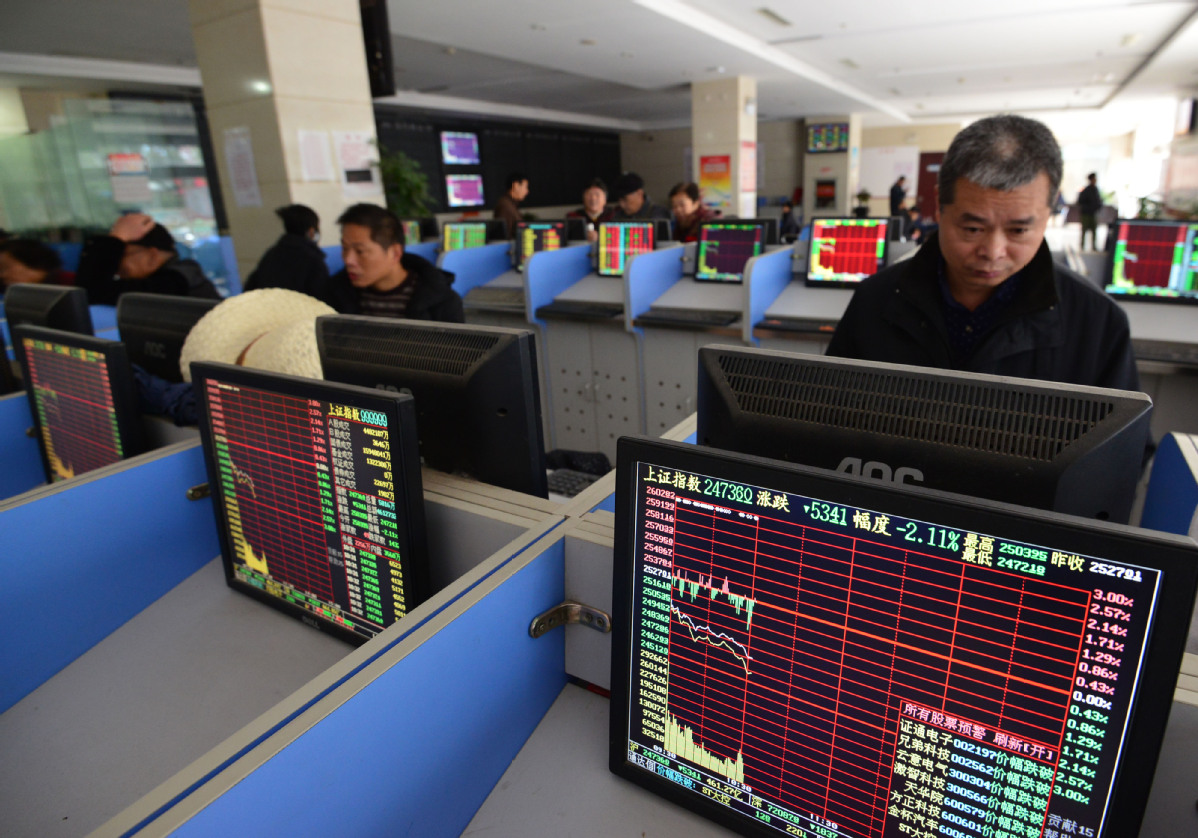Innovation board a game-changer


Science and technology platform could boost A-share market liquidity
The science and technology innovation board, an equity financing platform, is expected to debut in the first half of this year.
It could boost liquidity in China's A-share market if it receives backing by way of appropriate policy moves, experts said.
Although details like agenda and rules are still unknown, investors have shown enthusiasm for the new board, with companies related to technological innovation registering active performance in the stock market.
But, there are also worries that any investor migration to the new board in the future may strain existing boards.
Dong Dengxin, director of the Finance and Securities Institute at the Wuhan University of Science and Technology, however, said such worries are unnecessary.
Some investors in existing boards may shift to the new board, but their amount should be limited. For, investors attracted by the new board are expected to be different from those on other boards, Dong said.
"Compared with the existing ChiNext board that's heavy with innovative, high-growth companies, the new board will feature the registration system, and thus attract investors with higher risk tolerance and investment expertise," Dong said.
He said he expects regulators to set appropriate standards for investors to satisfy, in order to trade on the new board.
The science and technology innovation board is set to be the only trading platform in the A-share market to adopt the registration system. Eligible enterprises can go public by filing required documents.
Other trading platforms adopt the approval system, which means regulators decide whether a company can be listed or not, a practice that helps shield investors from risky firms.
"The new board and the existing ones will be complementary, not only competitive," Dong said.
Agreed Xue Yi, an associate professor of finance at the University of International Business and Economics in Beijing.
"Based on historical experiences, if the new board enables investors to make a profit, the A-share market as a whole will attract new capital inflows," Xue said.
This will help the existing boards to offset a shift in investment flows into the new board and register a positive performance, Xue said.
"For instance, within one year of its rollout in 2009, the ChiNext board recorded gains together with older boards in the A-share market. A similar story happened in the United States when the Nasdaq debuted in 1971," Xue said.
"Even if the whole market attracts new capital, some low-quality stocks may be hurt by the diversion of funds from the existing boards," said Li Ye, an analyst with Shenzhen-based Great Wall Securities.
"This could mean there will be better resource allocation as financing resources will concentrate more on listed companies with higher quality and growth potential," Li said.
Li also said that to avoid negative impact on existing boards, policymakers are trying to regulate the pace of new listings on the innovation board. For instance, they have decided to list companies in batches.
Hong Rong, founder of investor education platform Hongda Education and an MBA tutor at the Shanghai Advanced Institute of Finance, expects the new board to implement stricter regulations on information disclosure and delisting.
This can deter many low-quality companies from going public on the new board and contain the scale of financing demands, Hong said.
His comment was in response to an announcement made by the China Securities Regulatory Commission on Dec 24, which said the new board will push forward the reform of fundamental rules, covering stock issuances and trading, listing and delisting, information disclosure and investor eligibility.
"Companies listed on the new board that flout information disclosure regulations should pay more severe penalties than on other boards," Hong said.
He called for other rules to avoid straining liquidity on older boards. More favorable policies for investment banks, and pre-arranged policy plans that deal with potential liquidity difficulties on existing boards, could help, he said.




































